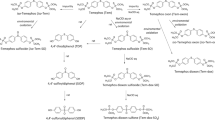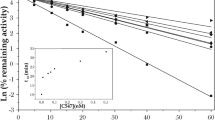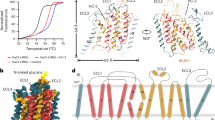Abstract
ACETYLCHOLINESTERASE (ACHE) activity appears to be located at the outer surface of the human erythrocyte1. We have previously shown that ACHE activity is reduced in newborn children affected with ABO haemolytic disease2. A similar defect has been detected in erythrocytes of patients with paroxysmal nocturnal haemoglobinuria (PNH)3. Watson4 has reported that in contrast to normal erythrocytes, those from patients with PNH do not bind penicillin G. In an attempt to establish further similarities between the erythrocytes of infants with ABO disease and the cells of patients with PNH we tested penicillin-binding capacity. Using the technique described by Watson et al.5 with a highly sensitive strain of β-haemolytic streptococci as indicator, we could confirm the inability of PNH erythrocytes to bind penicillin but could not detect decreased binding by red cells from infants with ABO haemolytic anaemia compared with normal adult erythrocytes. Unexpectedly, when membranes from penicillin-treated red cells were tested for ACHE activity, significant inactivation was noted. This observation prompted an investigation of the effects of this antibiotic on erythrocyte ACHE activity. Additional indications for conducting these studies were the recent demonstrations of antipenicillin antibodies6,7 and of in vivo coating of erythrocytes by penicillin8 in cases of haemolytic anaemia caused by administration of penicillin.
This is a preview of subscription content, access via your institution
Access options
Subscribe to this journal
Receive 51 print issues and online access
$199.00 per year
only $3.90 per issue
Buy this article
- Purchase on Springer Link
- Instant access to full article PDF
Prices may be subject to local taxes which are calculated during checkout
Similar content being viewed by others
References
Herz, F., Kaplan, E., and Stevenson, jun., J. H., Nature, 200, 901 (1963).
Kaplan, E., Herz, F., and Hsu, K. S., Pediatrics, 33, 205 (1964).
Auditore, J. V., and Hartmann, R. C., Amer. J. Med., 27, 401 (1959).
Watson, K. C., Nature, 195, 189 (1962).
Watson, K. C., Joubert, S. M., and Bennett, M. A. E., Immunology, 3, 1 (1960).
Petz, L. D., and Fudenberg, H. H., New Eng. J. Med., 274, 171 (1966).
Swanson, M. A., Chanmougan, D., and Schwartz, R. S., New Eng. J. Med., 274, 178 (1966).
Clayton, E. M., Altshuler, J., and Bove, J. R., Amer. J. Clin. Path., 44, 648 (1965).
Ley, A. B., Harris, J. P., Brinkley, M., Liles, B., Jack, J. A., and Amos, A., Science, 127, 1118 (1958).
Fudenberg, H. H., and German, J. L., Blood, 15, 683 (1960).
Kinsky, S. C., Arch. Biochem. Biophys., 102, 180 (1963).
Author information
Authors and Affiliations
Rights and permissions
About this article
Cite this article
HERZ, F. Inactivation of Erythrocyte Acetylcholinesterase by Penicillin. Nature 214, 497–499 (1967). https://doi.org/10.1038/214497a0
Published:
Issue Date:
DOI: https://doi.org/10.1038/214497a0
This article is cited by
Comments
By submitting a comment you agree to abide by our Terms and Community Guidelines. If you find something abusive or that does not comply with our terms or guidelines please flag it as inappropriate.



